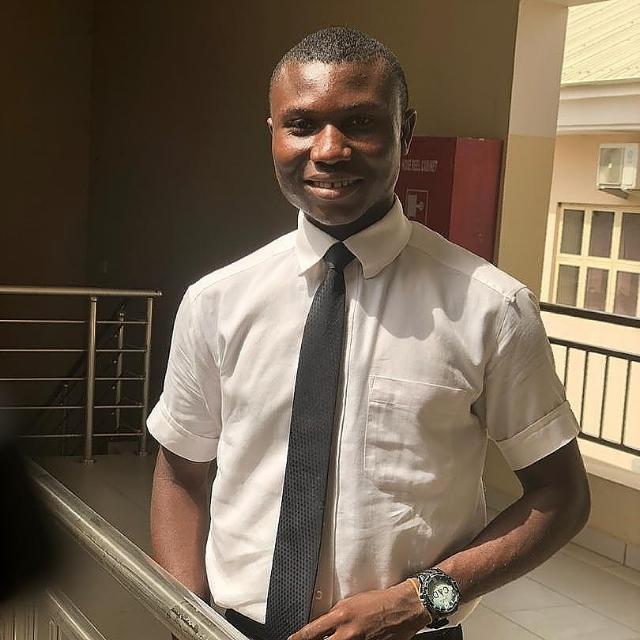THE SCOPE OF HUMAN RIGHT UNDER THE NIGERIAN CONSTITUTION
BY
ATER, SOLOMON VENDAGA
INTRODUCTION
It may be apt to presume that every average Nigerian atleast has a clue about the concept of Human Rights. This is why, it is often heard from people making claims such as – it is my Right! I’ve my Right and some will even put it to you straight that you are trampling on their fundamental Rights, it is an affront to their Rights, and you violate their Human Rights and so many other claims and declarations as the case may be.
However, the questions that keep boiling each time the concept of Human Rights is put forward to the legal tables for discussion are;
This work seeks amongst other things attempt to provide answers to the above highlighted mind blowing questions about the concept of Human Rights.
Human Rights are those Rights which no one may be deprived of without an affront to justice. They are referred to as freedom, which should never be denied, and Rights which are sacred to human.
The most pragmatic definition this work would adopt will be the one proffered by the basic law as, HumanRights are those Rights that have been legislated upon and provided for in a statute which the court will enforce in a state.
The above definition as provided by the law shows thatfor one to claim that he has a Right, such Right so claimed must have been legislated upon and should not just be a mere expression of what it ought to be. In this line, the law further confirms that such right can be denied when necessary.
Chapter 4 of the 1999 Constitution (as amended) provides for Rights available to citizens and can be enforced within the court system as seen under Section 46 of the saidConstitution. This is because the rightsare deemed as Fundamental, hence, the name Fundamental Rights and by this very fact, the law seems to have open a gate of our courts for consideration of matters bordering on this topical issue.
However, it is noted that those rights as provided in chapter 2 which are fundamental objectives and directive principles of State Policy are generally taken not to be within the ambit of Rights to be enforceable by law.
It is observed that by the same Constitution, where one indicate a peculiar interest in the said rights, he mustprove so by providing other sections of the law to claim that Right.
It appears from the preceding position that under the Nigerian justice system, two qualifications of rights exists. That is the justiciable (rights under Chapter 4) and non–justiciable (rights under Chapter 2).
Thedichotomy between justiciable and non–justiciable Rights has received judicial blessings as well. Thus, inthe case of Uzouku V. Ezeonu, it was stated that it is only the Rights within the purview of Chapter 4 of the 1999 Constitution that fall under the jurisdiction of the court to enforce. All the Rights in Chapter 2 are not within the ambit of the Court to enforce except provided for elsewhere aside chapter two in the Constitution or Legislated into Law by the National Assembly. See the case of Olaniyi V. Aroyehumwhere the Supreme Court held that chieftaincy is not a matter within fundamental Rights provisions, as there is no such right to be a Chief.
CONCLUSION
Gathering from the foregoing, it suffices to state that the concept of Human Rights is beyond the claims of “right to life, freedom of expression etc”. It goes on to touch on the question of what scope of the rights that is available to citizens, and in what circumstances these rights can be taken away from the citizens as provided in s. 45 of the Constitution.
****************************************************************************************
This free legal awareness project of Sabi Law Foundation is funded by the law firm of Bezaleel Chambers International (www.BezaleelChambers.com)
You can support this project and other law awareness programs by donating to Sabi Law Foundation via this link; https://dashboard.flutterwave.com/donate/k0gqpg9rnccq or https://sabilaw.org/donate/
DISCLAIMER:
This publication is not a piece of legal advice. The opinion expressed in this publication is that of the author(s) and not necessarily the opinion of Sabi Law Foundation, its staff and partners.
FREE PUBLICATION (Get Published):
You too can publish your law articles for free on our website (www.LearnNigerianLaws.com) and enjoy increased visibility and readership on all our social media handles. No fess, no charges, no conditions and no submission guidelines are required. Just send your article and picture to our email (lawarticles@learnnigerianlaws.com). We want your voice to be heard, as we all increase legal awareness, together! It pays to Sabi Law (understand law)! #SabiLaw
TRAINING & LECTURES
Book us to speak/train you or your group on rights and laws. Reach us via sponsorship@learnnigerianlaws.com or our hotline!
KEEP IN TOUCH:
Get updates on all the free legal awareness projects of Sabi Law Foundation (#SabiLaw) and its partners, via:
Facebook Page: @LearnNigerianLaws
Instagram: @LearnNigerianLaws
Twitter: @LearnNigeriaLaw
YouTube: Learn Nigerian Laws
WhatsApp Groups via: (https://chat.whatsapp.com/DJZ30OYwP23IVM8HjS4pJs),
WhatsApp Chat via: (+234 903 913 1200)
Telegram Group: (https://t.me/LearnNigerianLaws),
Facebook group: (https://www.facebook.com/groups/129824937650907/?ref=share)
or visit our project Website: (www.LearnNigerianLaws.com)
ABOUT US & OUR PARTNERS:
This publication is the initiative of the Sabi Law (www.SabiLaw.org) {A Free Law Awareness Program of Sabi Law Foundation, supported by the law firm of Bezaleel Chambers International (www.BezaleelChambers.com)} Sabi Law Foundation is a Not-For-Profit and Non-Governmental Legal Awareness Organization based in Nigeria. It is the first of its kind and has been promoting free legal awareness since 2010.
DONATION & SPONSORSHIP:
As a registered not-for-profit and non-governmental organisation, Sabi Law Foundation relies on donations and sponsorships to promote free legal awareness across Nigeria and the world. With a vast followership across the globe, your donation will assist us increasing legal awareness, improving access to justice, and reducing common legal disputes in Nigeria. Make your donations to us via :https://dashboard.flutterwave.com/donate/k0gqpg9rnccq or contact us for sponsorship and partnership, via: sponsorship@learnnigerianlaws.com, sabilaw.ng@gmail.com or +234 903 913 1200.
***********************************************************************************




















































